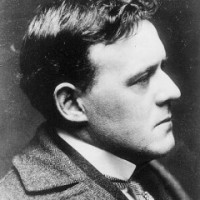Why Belloc Still Matters, by R.J. Stove
An author too robust and significant to be wholly un-personned can still be marginalized. Consider this elegant pasquinade, which years ago won a parody-contest award in Britain’s New Statesman and which employs the same rhyme scheme and meter as Hilaire Belloc’s own “The chief defect of Henry King”:
The chief defect of dear Hilaire Was not the clothes he used to wear, The curious hat and monstrous cloak, Paraded as some kind of joke. No, Hilaire’s fault, and well he knew it, Was, all he did, he’d overdo it… There’s more—he held the strongest views On politicians, and on Jews, Such as, today, might give one cause To think of Race Relations Laws. But that of Belloc is the worst That can be said. His comic verse, His Cautionary Tales, his Peers, His Beasts will last for countless years, Delighting readers old or young Who share Hilaire’s adopted tongue.
Well, that’s put Dear Hilaire back in his box, hasn’t it? If Belloc’s entire literary merit lies in his having catered to the A.A. Milne and Edward Lear demographic, we need no more bother ourselves with his wider aims than seek deep epistemological insight from re-reading about Pooh Bear or The Dong With The Luminous Nose. But then the New Statesman has never claimed theological expertise. Others, who do possess such claims, and who in many instances share Belloc’s Catholicism, have been at least as hostile. Malcolm Muggeridge complained, “although he has written about religion all his life, there seemed to be very little in him.” Six years before the Latin Mass’s recent anti-Belloc enfilade, St. Louis University’s James Hitchcock (in the May 1996 issue of Crisis) likened Belloc to “a man with a machine gun—by spraying shots everywhere he inevitably hit some targets, but many of his bullets went astray.” This allegation can at any rate be argued over, unlike certain antics of the occasional self-confessed Belloc fan. (Such as John Anderson, who passed as the doyen of Australian philosophy during the 1930s, 1940s, and 1950s and who labored with surrealistic persistence to reinterpret Belloc’s Servile State as a sacred text for antipodean atheist head-kickers. When Belloc’s friends included historical illiterates like Anderson, he hardly needed foes.)
How stands the case for the prosecution? In particular, was G.M. Trevelyan, Regius Professor of History at Cambridge 1927-1940, justified in having flatly called Belloc “a liar”?
Occasionally, alas, yes. Belloc confided as much himself, to a co-religionist at that: the British historian, newspaperman, and editor Douglas Woodruff. While going several debating rounds in print against his merciless ultra-Protestant detractor, the once-celebrated controversialist G.G. Coulton, Belloc came out with one assertion so breathtakingly implausible that it moved Woodruff to inquire, “But is it true?” “Oh, not at all”, Belloc retorted. “But won’t it annoy Coulton?” Such a deliberate, impolitic falsehood clearly sprang from insensate bravado rather than from malice. It is doubtful, moreover, whether the historian who hastily and occasionally deceives others is half as dangerous as the historian who consistently and lucratively deceives himself. (Many a reader obligated to plow through the unrelenting sanctimony of more recent and more fashionable gurus than Belloc—Arthur Schlesinger expounding the immaculate conception of JFK; Eric Hobsbawm assigning a similar redemptive role to the proletariat; Francis Fukuyama hyperventilating about free-market dogma’s limitless appeal to any polity, however Lower Slobbovian—must have felt increasingly inclined to welcome from these sources an honest lie or two.) Still, Belloc’s mendacity at that juncture defies excuses and leaves behind a singularly nasty odor.
An even graver sin, curiously slighted by Belloc’s most recent biographers, A.N. Wilson (Hilaire Belloc, 1984) and Joseph Pearce (the shorter, more reverential Old Thunder: A Life of Hilaire Belloc, 2002), occurs repeatedly in Belloc’s analyses of the French Revolution. Notwithstanding the fervor with which pope after pope—especially, in Belloc’s youth, St. Pius X—had declared support for Jacobins and indeed Girondins to be incompatible with the most basic Christian decency, Belloc remained as eupeptic as any Charles James Fox about the entire pageant of French politics from the Bastille’s fall via Robespierre to Napoleon. Revolutionary genocide against the Vendéens and Chouans scarcely touched Belloc’s consciousness. On his last (1937) tour of the U.S., he accused Americans of wanting to hear “48,376,277 times…that war is all wrawng and why cahunt everyone in Yurrup live peaceably same as us; that Religion don’t count same as it useter ’cos there’s more enlight’nment now.” So he could perceive, and denounce, lunatic world-saving Wilsonian optimism when it fell from his hosts’ lips. Why that optimism somehow became acceptable when the increase in “enlight’nment” had been effected by the guillotine, instead of by American presidential overreach, Belloc never explained.
This all amounts to a grim indictment. What case for the defense can outweigh it? There actually exist two such cases: first, Belloc’s daunting percipience; second, his equally daunting versatility as a poet.
Read the complete article in The Imaginative Conservative
